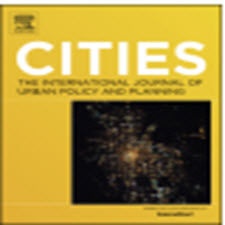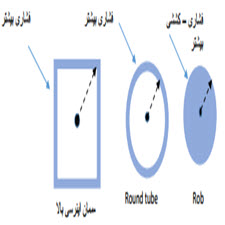توضیحات
ABSTRACT
In the ‘century of the city’, with an increasing share of the world population living in urban agglomerations, cities have not only increased in number and size, but have also turned into complex and multi-faceted organisms. A modern city is no longer a simple settlement system with buildings, infrastructure and people, but displays nonlinear evolutionary structures and trajectories as a result of an underlying complex force field comprising a multiplicity of (internal and external) actors and of (tangible and immaterial) constituents that altogether shape contemporaneous city life. Urbanity has become a “modus vivendi” of the 21st century, in which urban agglomerations are the geographic projections of an emerging new society characterized by connectivity, mobility and flexibility. The complexity of ever growing cities in this world prompts serious policy concerns regarding environmental quality, energy use, transport accessibility, social cohesion, labour and housing markets, public amenities, safety, effective governance, local well-being, and so forth. To cope with all these challenges – and many more – in the harsh reality of urban policy and management, city authorities have over the years
often resorted to sectoral responses, without sufficient regard of the interwovenness of a complex urban system and without carefully basing necessary urban decisions and adjustments on a solid and verified information base that maps out the multidimensional complexity of the urban area concerned. Consequently, urban policy tends to become fragmented and not supported by quantitative accountability and solid test principles To cope with these serious governance deficiencies in the ‘century of the city’, in the past decade the notion of a “smart city” has been introduced so as to reap the fruits of a modern knowledge-economy based on cognitive principles and to apply these effectively in an urban context. This concept of a smart city however, has in the meantime turned into a fashionable and vague buzzword, with the consequence that each city wishes to be called a smart city (or – even worse – calls itself a smart city). This concept stands, in general, nowadays often for a characteristic of urban governance driven by advanced knowledge, digital information and high-tech policy strategies serving the needs of
citizens.
چکیده
در قرن بیستم، با افزایش سهم جمعیت جهان در شهرک های شهری، شهرها نه تنها تعداد و اندازه را افزایش دادند، بلکه به ارگانیسم پیچیده و چند گانه تبدیل شده اند. یک شهر مدرن دیگر یک سیستم حل و فصل ساده با ساختمان ها، زیرساخت ها و مردم نیست، اما ساختارهای تکاملی غیر خطی و مسیرها را به عنوان یک نتیجه از یک نیروی پیچیده پایه تشکیل می دهد که شامل چندین بازیگر (داخلی و خارجی) و (ملموس و غیرمستقیم) اجزاء تشکیل دهنده که در کل زندگی زندگی شهری را تشکیل می دهند. شهری تبدیل به یک “مدیسویو” قرن بیست و یکم شده است، که در آن شهرک سازی های شهری، پیش بینی های جغرافیایی یک جامعه جدید ظهور است که ویژگی ارتباط، تحرک و انعطاف پذیری دارد. پیچیدگی شهرهای رو به رشد در این دنیا، نگرانی های جدی سیاست مربوط به کیفیت محیط زیست، استفاده از انرژی، دسترسی به حمل و نقل، انسجام اجتماعی، بازار کار و بازار مسکن، امکانات عمومی، ایمنی، حکومت موثر، رفاه محلی و غیره را موجب می شود. برای مقابله با تمام این چالش ها – و بسیاری دیگر – در واقعیت خشن سیاست و مدیریت شهری، مقامات شهرستان بیش از سال به استفاده از پاسخ های بخش های مختلف، بدون توجه کافی نسبت به درهم آمیختن یک سیستم شهری پیچیده و بدون دقت تصمیم گیری های شهری و تعدیلات در یک پایگاه اطلاعات جامد و تأیید شده که پیچیدگی چند بعدی منطقه شهری را مورد توجه قرار می دهد. در نتیجه، سیاست شهری تمایل به تقسیم شدن دارد و نه با پاسخگویی کمی و اصول تست جامع. برای مقابله با این نقصانهای اداری جدی در ‘قرن شهر’، در دهه گذشته، مفهوم یک شهر هوشمند معرفی شده است برای به دست آوردن میوه های اقتصادی دانش مدرن مبتنی بر اصول شناختی و به کارگیری آن ها به طور موثر در یک چارچوب شهری. با این حال، این مفهوم از یک شهر هوشمندانه به یک شگفتی شگفت انگیز و مبهم تبدیل شده است، به همین دلیل هر شهر آرزو می شود یک شهر هوشمند نامیده شود (یا حتی بدتر از آن، یک شهر هوشمند است). به طور کلی، این مفهوم در حال حاضر اغلب برای مشخصه ای از حکومتداری شهری است که به وسیله دانش پیشرفته، اطلاعات دیجیتال و استراتژی های سیاست های پیشرفته در خدمت نیازهای مردم است.
Year: ۲۰۱۸
Publisher : ELSEVIER
By : 0
File Information: English Language/ 3 Page / size: 196 kB
سال : ۱۳۹۶
ناشر : ELSEVIER
کاری از : 0
اطلاعات فایل : زبان انگلیسی / 3 صفحه / حجم : KB 196



![MesoCity Tehran Workshop Art, Ecology and the City[taliem.ir]](https://taliem.ir/wp-content/uploads/MesoCity-Tehran-Workshop-Art-Ecology-and-the-Citytaliem.ir_.jpg)






نقد و بررسیها
هنوز بررسیای ثبت نشده است.